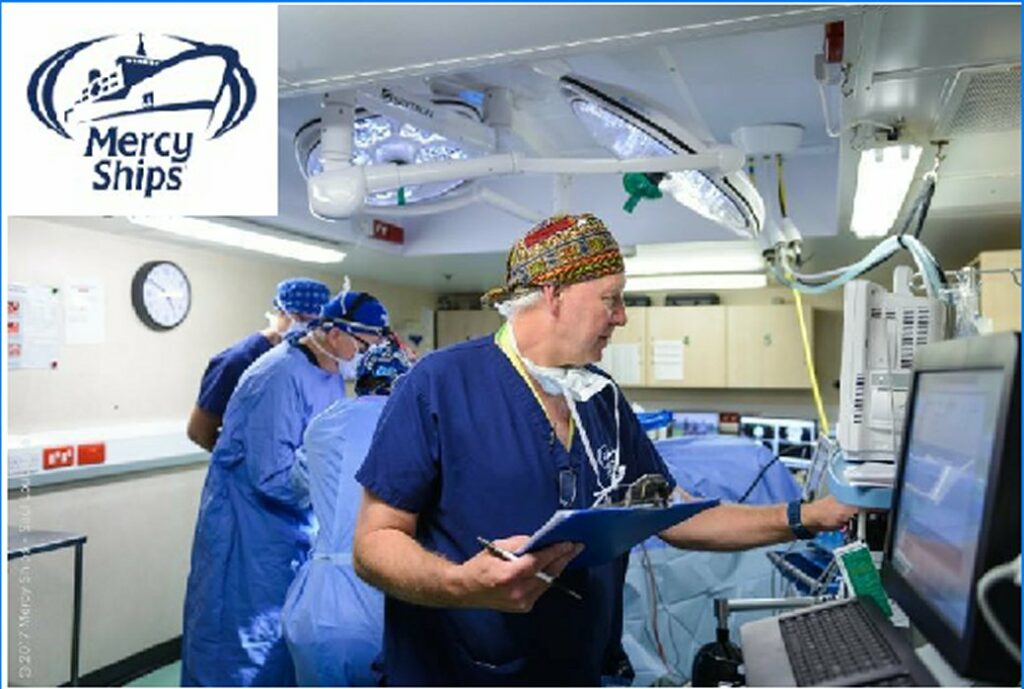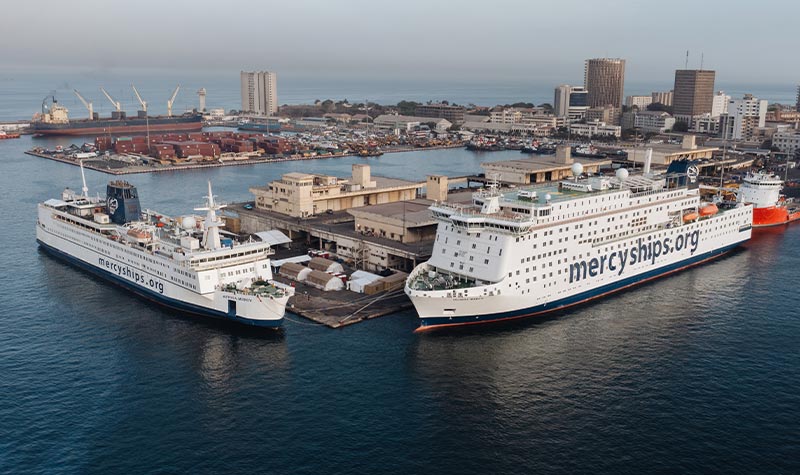Our long-awaited return to face-to-face gatherings – after more than two years of virtual Zoom meetings forced upon us by the Covid emergency – provided us with an inspiring talk by retired anaesthetist Dr Alan Kershaw in our new surroundings of Fulwood Sports Club.

Alan, 65, who spent 25 years as a consultant at Barnsley Hospital before his retirement, now devotes his time and skills to Mercy Ships, a faith-based international charity that deploys hospital ships to some of the poorest countries in the world, delivering vital healthcare to people in desperate need.
Worldwide, five billion people lack access to safe, affordable and timely surgery. Many of them live in developing countries where healthcare is limited or non-existent, and where there is a shortage of trained healthcare providers. Fortunately, more than 44 per cent of the world’s population lives within 100 miles of a coast, which is why the Mercy Ships organisation uses modern hospital ships to bring world-class volunteer medical professionals directly to the places they’re needed most.
Not only are the ships manned by volunteers such as Alan, from up to 40 nations, but those volunteers pay their own way by covering the cost of travel to reach the ships, as well as their food and accommodation on board.
“The fact that it is a Christian charity goes all the way through like a stick of rock,” explained Alan as he began his gripping, hour-long presentation which included often stark reminders of the valuable work they undertake, with images of patients suffering from a wide range of disease, injuries, facial disfigurements and burns.
“The mission statement of Mercy Ships is to follow the 2,000-year-old example of Jesus, to bring hope and healing to the forgotten poor,” he added. “For hope to be credible in the future, it must be tangible in the present. Everyone has a right to look human.”
Alan self-deprecatingly added: “I am a bog basic anaesthetist, but the surgeons I work with are world class. It is a real honour to be working alongside them.”

The charity, which operates mainly in the countries of West Africa, was set up more than 40 years ago and originally operated from a ship named Africa Mercy which for 30 years had operated as a Danish rail and road ferry before being refitted by Cammell Laird to incorporate six operating theatres, four wards and an intensive care unit. Global Mercy, which has now joined the fleet, is the largest non-government hospital ship in the world. The new ship, of 37,300 tons, has 12 decks, 277 rooms and 641 beds, and can accommodate 950 people.
As well as completing thousands of urgent operations onboard its floating hospitals, Mercy Ships volunteers also work closely with host nations to improve the way healthcare is delivered across the country, by training and mentoring local medical staff, and renovating hospitals and clinics.
Founded in 1978 by Americans Don and Deyon Stephens, Mercy Ships has worked in more than 55 countries, providing services valued at more than £1.3 billion. By improving healthcare delivery in every country it visits, Mercy Ships is working to eradicate the diseases of poverty and effectively do itself out of a job.
The new ship cost 80 million dollars to construct and a further 80 million dollars to fit out. The charity relies on contributions large and small, which can be made via the ‘Donate’ page on the Mercy Ships website: https://www.mercyships.org.uk/donate/give/
